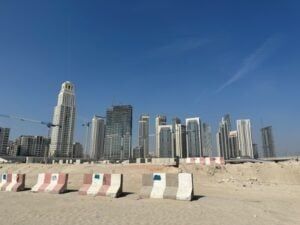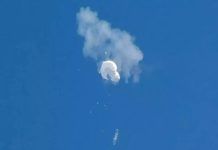Ramtech has installed its Wireless Fire and Evacuation System (WES) as part of a $2.5bn mixed-use development in Dubai. The WES solution is said to have been specified within several projects at the eight million sq ft waterfront venture, Sobha Hartland, in a bid to maximise construction site safety.
The first site to benefit was a 36-storey tower, Waves Grande, where one connect unit, 22 call points, and two link units, enabled the site to deliver automatic fire and medical alerts throughout each development phase, with completion expected early next year.
Tim Young, Sales Director at Liberty Fire and Safety, said: “This is a huge undertaking in the region, with several developments being constructed simultaneously. With such vast sites, there is simply no room for error, particularly when it comes to ensuring workers are protected and project timelines remain on track and on budget.
“What we’ve provided is a way for Sobha Hartland to move with the times, delivering modern fire safety solutions that ensures sites are protected, even out of hours or overnight, when accidents or fire emergencies are most likely to happen.
“As a portable solution, WES can easily be scaled up or scaled down, depending on project need, which fits well with the requirements for Waves Grande – a residential tower that when complete, will be a fantastic new addition to the luxury living offering in Dubai.”
According to Ramtech, the next project for the WES system install is Creek Vista Heights, expected to complete in 2026, which will have views of the Burj Khalifa and will offer one, two and three bed apartments.
Both Waves Grande and Creek Vista Heights is said to form part of the wider Sobha Hartland project in the Mohammed Bin Rashid Al Maktoum City, with 5,000 apartments and 353 villas being constructed by more than 3000 workers.
Nelson George, Senior Manager for Health, Safety, Security and Environmental at Sobha Construction, said: “The growth of Dubai and its residential offering is hugely exciting, but it cannot happen without a coordinated response plan, should the worst happen on site.
“That’s why we have invested in WES, which has made our emergency evacuation procedures more efficient, while eliminating the need for manually operated alarms. It delivers complete fire safety coordination, measurement, and auditing at the touch of a button, with wireless functionality increasing its adaptability across multiple environments. “As we move from project to project, the technology will be an invaluable tool in keeping our sites safe, secure and above all protected at all times.”








